Kathryn Mockler's Blog, page 32
December 10, 2023
Stephen Humphrey | Issue 31
Pollen’s job is to go places. It is an organism with no limbs, physical senses, or consciousness, yet it’s nonetheless tasked with a do-or-die mission to accomplish one of nature’s great errands: plant reproduction. Plants don’t move, and mostly they don’t need to. They are nourished by their own alchemy of water, CO2, and sunlight, so they don’t need to roam around searching for food. Sex is another matter. Since plants are immobile, they can’t go out and search for mates. Instead, they release pollen grains, tiny portable vessels, which deliver their sex cells to other plants. This act of remote conception is called pollination. When pollen consummates this vegetative union, a fertilized plant makes seeds.
Plants exchange pollen, frequently but not always assisted by animal agents (sometimes wind is their only ally). A range of different animals pollinate plants, including birds, reptiles, a few mammals, and scores of insects. This diverse cast of creatures all bear the title “pollinator.” Pollen is small and transportable, but it doesn’t know where it’s going and can’t move under its own power. Since animals are built for mobility and inclined to move around, they’re natural helpers. Not that they know they’re helping. Pollinators go to flowers for reasons relevant to themselves, not plants. They arrive seeking food, shelter, spots to lay eggs, or places to mate. Their plant-bound journeys just happen to coincide with a plant’s need to spread pollen. Pollen is spread through networks of self-interested, mutually dependent stakeholders. However, when pollination succeeds, these unwitting partners help far more than themselves. They benefit much wider webs of life. Plants could not perform their ecological roles if they did not reproduce, so pollination is necessary to ecosystems. Crops require pollination, so it’s essential for agriculture. The world would be less green, and hungrier, if pollen could not get where it needs to go.
However, like other systems in nature, pollination networks are vulnerable to stress. Nature is currently beset by many kinds of ecological stress, and signs point to overstress across living communities. Notably, there are upticks in species extinctions. Die-offs have gotten so extreme, some ecologists suggest Earth is facing its sixth mass extinction. Mass extinctions involve rapid drops in biodiversity. When key species disappear, webs of interdependence collapse, dragging more species to oblivion. Given time (millions of years), life recovers and repopulates, but things don’t come back just like before, and numerous things are gone forever. No-one has seen a T. rex since the previous mass extinction, except in movies and museums.
No living thing is guaranteed permanence. Nor has any form of life always been here. If we look back one billion years, we’ll see nothing alive on land – no animals or plants, not even soil, just bare virgin rock. Half a billion years later, when plants started greening the world, there was no such thing as pollen. For millions of years plants propagated with spores, but when pollen arrived, it brought certain innovations, such as the creation of seeds. Like pollen, seeds were tough, portable, and more resistant to moisture loss than spores. Millions more years passed before flowers and their by-products, fruits, came along. Up until 140 million years ago, land vegetation had nothing to show but greenness. Yet by the time plants finally revealed their colourful, “flowery” side, scores of species had vanished in four mass extinctions and several minor extinction “pulses.” Flowers, themselves, are not safe from going extinct. Fossil evidence from the fifth mass extinction hints that the largest lineage of flowers, along with their pollinators, came close to disappearing (see chapter 6). Had history followed a different path, flowers might not even exist today. For all we know, the next mass extinction, or the one after, will finish off flowering plants, once and for all.
How the next round of extinctions proceeds might well be in humanity’s hands. The human race’s impact on nature has intensified since Homo sapiens first began to exploit nature’s bounty. Some experts even propose calling our current geologic epoch the Anthropocene. Environmentalists fret over the prospect that human actions (and inactions) may drive nature to inexorable “tipping points.” A tipping point is where an event, once set in motion, become unstoppable, like a roller coaster hurtling over a rise. Past a certain point, gravity takes over, and the rest is downhill.
If anything is going up these days, it’s the planet’s temperature. As we burn through fossil fuels, greenhouse gases released into the atmosphere push global temperatures ever higher. According to America’s climate-monitoring agency, the National Oceanic and Atmospheric Administration (NOAA), the ten warmest years on record have occurred since 2005, the last seven since 2014. Even if greenhouse gas emissions hold steady or decline, computer models predict the Earth’s average temperature will rise between 2.4 and 5.9 degrees Celsius by the end of this century. Those numbers may not sound large, but the last time world temperatures approached this level was 56 million years ago. That dramatic warming event, called the Paleocene-Eocene Thermal Maximum (PETM), was especially hard on marine species, killing more than 90 per cent of ocean life. Greenhouse gases, from volcanoes most likely, saturated the air over 20,000 years, a geologic eyeblink. That period of “rapid” heating was slow compared to now. By recent estimates, human activity pumps CO2 and other compounds into the atmosphere nine to ten times faster. If emissions keep to their current rate, Earth could match the PETM’s levels in 140 to 259 years (five to ten human generations), a hundred times faster than the PETM.
Pollen plays a fascinating part in researching past climate events such as the PETM. Among its climate-monitoring tools, NOAA maintains a global pollen database. There, pollen extracted from sediments all over the world helps scientists infer past climate conditions without “direct observational data.” Pollen particles are useful for this sort of analysis because they age well as fossils. Pollen grains are strong as well as small. The sex cells inside them stay viable for just a short time, but their outer shells remain intact for millions of years. “Pollen” derives from two Greek words: “paluno,” which means “to sprinkle,” and “pale,” meaning “dust.” Leftovers of this once-living dust hint at how long pollen has played its role in nature’s story.
Pollen can also teach us about climate history – if we look very closely, more closely than the naked eye can manage. It takes powerful lenses to examine these durable little grains. In 1682, when microscopes were relatively new, English botanist Nehemiah Grew first discovered that clumps of “bee bread” from honeybee hives were made up of individual grains. He called these “globulets.” Grew conjectured, correctly, that pollen’s purpose was sexual in nature. Their hardy shells harbour gametes, or reproductive cells, within them.
Grains of pollen may have simple-looking designs, or might be geometrically complex, even sculptural. From species to species, they present a range of forms. Grew was the first scholar to notice that grains of pollen are different-looking, depending which plant they come from. Pollen grains are like fingerprints for plant species. Their distinctiveness makes them useful to NOAA’s climate researchers. By extracting pollen fossils from sediments, scientists can deduce which plants used to live in a place and how plentiful they were. To researchers, pollen grains are like tiny time capsules, in situ records of which plants perished and which ones persisted through ice ages, droughts, and global heat waves. This knowledge helps to model future climate trends.
Which plants will flourish as the world warms up? In the near term, probably lots of plants will. At first, longer growing seasons and more carbon dioxide (which plants consume) could make the world leafier. But there can be too much of a good thing. Plant leaves vacuum up CO2, turning carbon into sugars, which plant metabolisms use, while releasing oxygen, which animal metabolisms need. However, plants can only suck in so much carbon. Research shows some rainforests, the so-called “lungs of the planet,” have begun emitting, rather than absorbing, CO2. With so much carbon floating around, will the world keep getting leafier, or will plants wither and wilt, overwhelmed by their new global hothouse?
Plants have plenty of problems already. In 2019, scientists announced 571 plant species had gone extinct over the past three centuries. Climate change was not even the top cause. Other human-led factors did more to trigger declines in plant diversity, such as plants losing habitat to industry and cities, invasive species out-competing local plants, and pollution – climate-warming and otherwise. Meanwhile, humanity’s need for plant products keeps growing. Demand is trending up for plant-sourced goods such as food, medicines, fibres, wood and other construction materials, and biofuels. In 1960, the world had 3 billion human beings. In 2022 Earth’s population officially reached 8 billion, according to the United Nations’ World Population Prospects report. That number is up from 7 billion in 2010. We could reach a projected 9.7 billion people by 2050. One survey predicts that global food demand will rise by 35–56 per cent between 2010 and 2050; complications from climate change could bump up this figure to 62 per cent. The United Nations Food and Agriculture Organization (FAO) says food production will need to increase by 70 per cent within that timespan to keep up with consumption.
Pollinator populations also look to be trending downward. In 2016, a panel of experts filed a report for the United Nations commission on biodiversity, the Intergovernmental Science-Policy Platform on Biodiversity and Ecosystem Services (IPBES). The document, titled “Assessment Report on Pollinators, Pollination and Food Production,” concluded that 75 per cent of food crops and nearly 90 per cent of wild flowering plants depend to some extent on animal pollination. It also found that pollinators were increasingly under threat, as “Nature across most of the globe has now been significantly altered by multiple human drivers.” While pollinators exist across the animal kingdom, the majority are insects. Bees get most of the press, but flies, beetles, butterflies, and wasps pollinate as well. Unfortunately, population data for insects points to steep declines in their numbers. A New York Times article in 2018 announced, “The Insect Apocalypse Is Here.” The piece referenced a European study published in 2017 that warned the world has 75 per cent less insect biomass since 1989.
Still, pollination is not merely a numbers game that measures so many pollinators versus so many plants. It is webs of different species mutually adapting to changes in their environments. Pollination networks, being complex, are vulnerable to change; but they also have some flex. They might lose plants or pollinators might go away, but the networks themselves stay intact – up to a point. Attrition happens in nature, it’s nothing new, but living communities can crash if too many species vanish. At some point, too much is too much.
In 2020, scientists at the Georgia Institute of Technology looked at fossil pollen from over the past 20,000 years. They were testing for “landscape resiliency” of plant communities in North America. They found that North America currently has the lowest landscape resilience since the so-called “end-Pleistocene megafaunal extinctions,” when the continent’s biggest mammals died out, 40,000 to 50,000 years ago. What worried the researchers was the present-day ratio between “residence times” and “recovery times.” The longer plants reside in places, the more diverse they become and the faster they recover from disturbance. Sadly, say the scientists, right now too many habitats are too young. We have forests, but not as many old forests. We have grasslands, but those grasslands are less biodiverse. It is harder for younger, less diverse ecosystems to build back up when they’re knocked down. The scientists warn of “foreboding potential extinctions to come.”
The good news is while plants have the potential to go extinct, they also have the capacity to bounce back. Plants spring from seeds in just weeks. A grain of pollen forms over a day or so. People know how to plant seeds. They’ve done it for thousands of years. We can declare plants or pollinators endangered and make plans to protect them. But how do we protect pollination, which is not a species but an ephemeral network of organisms? Preserving networks requires stewardship, which is not just action but habit. After you plant a garden, you need to keep tending it. Stewarding takes time, and also learning. Like a garden, knowledge too needs tending. Pollination is complex ecologically, and difficult scientifically. As a topic, it’s a moving target, in no small part because plants, pollinators, and the natural world keep changing. But before we race further into pollination’s (potentially daunting) future, let’s pause for a moment to peek into the past, where innumerable adaptations led to life as we now know it, and somehow resulted in the little vessel of life called pollen.
© 2023 Humphrey, Stephen, Paths of Pollen, MQUP, 2023. Print and Digital, pages 3-9. Used with permission of McGill-Queen’s University Press.
Stephen Humphrey is a writer, radio contributor, and citizen naturalist originally from Western Canada, now based in Toronto.
 Text within this block will maintain its original spacing when published
Paths of Pollen
by Stephen HumphreyMcGill-Queen's University Press, 2023
Text within this block will maintain its original spacing when published
Paths of Pollen
by Stephen HumphreyMcGill-Queen's University Press, 2023Order from MGUP or your favourite local bookstore.
A tiny organism called pollen pulls off one of nature’s key tasks: plant reproduction. Pollination involves a complex network of different species interacting with one another and mutually adapting to their ecosystems, which are constantly changing.
Some pollen grains require just a puff of wind to set them in motion, but most plants depend on creatures gifted with mobility. These might be birds, bats, reptiles, or insects including butterflies, beetles, flies, wasps, and over twenty thousand species of bee. In Paths of Pollen Stephen Humphrey asks readers to imagine a tipping point where plants and pollinators can no longer adapt to stressors such as urbanization, modern agriculture, and global climate change. Illuminating the science of pollination ecology through evocative encounters with biologists, conservationists, and beekeepers, Humphrey illustrates the significance of pollination to such diverse concerns as food supply, biodiversity, rising global temperatures, and the resilience of landscapes.
As human actions erase habitats and raise the planet’s temperature, plant diversity is dropping and a growing list of pollinators faces decline or even extinction. Paths of Pollen chronicles pollen’s vital mission to spread plant genes, from the prehistoric past to the present, while looking towards an ecologically uncertain future.
This newsletter is free, but you can support it by signing up for a monthly or yearly subscription, liking this post, or sharing it!
Big heartfelt thanks to all of the subscribers and contributors who make this project possible!
ConnectTwitter | Bluesky | Instagram | Archive | Contributors | Subscribe
December 7, 2023
Tosh Sherkat | Issue 31
(for Bisan)
Text within this block will maintain its original spacing when publishedBisan from the north of Gaza gives you updates in each video you watch her nails grow longer, lipsswell with lack of water.you want to send her a letterbecause they say no humanitarianaid is getting through. you wantto send her a letter with nailpolish and clippers, but no mailmanis driving through the open wound as it bleedscries from babies under the bombs.this shape of lightthis uncertainty of alarm,its olive, rising rhymeas you forget about the stoveon the phone with Bisan,whose suffering is now homeless.you watch every day. she is still there.you want to fly there. you’ll fly toJordan, to Cairo, to Beirut, toEilat, Tabuk, Tel Avivand storm the border with food and water andyour letter and morphine for those who are going to dieand deserve that at least gently.there is no good image for this.but somewhere in the distance the world is burningyou just can’t see it.if you don’t know what I mean,you just can’t see it.you won’t make it to the border,or on the plane, there could be a weapon in the metalof the nail clippers or death gasin the little bottle with the polish label.how close we are.Thank you for reading Send My Love to Anyone. This post is public so feel free to share it.
Tosh Sherkat (they/them) is a Persian-Doukhobor settler-of-colour born on Sinixt territory, in Nelson, BC. They are a MFA student studying poetry at the University of British Columbia (Okanagan) on Syilx territory. Their writing appears at carte blanche, Terrain.org, Existere, and EVENT, among others, and is forthcoming at Acta Victoriana.
Support Send My Love to AnyoneThis newsletter is free, but you can support it by signing up for a monthly or yearly subscription, liking this post, or sharing it!
Big heartfelt thanks to all of the subscribers and contributors who make this project possible!
ConnectTwitter | Bluesky | Instagram | Archive | Contributors | Subscribe
December 6, 2023
KIRBY "It’s not a straight line." | The First Time
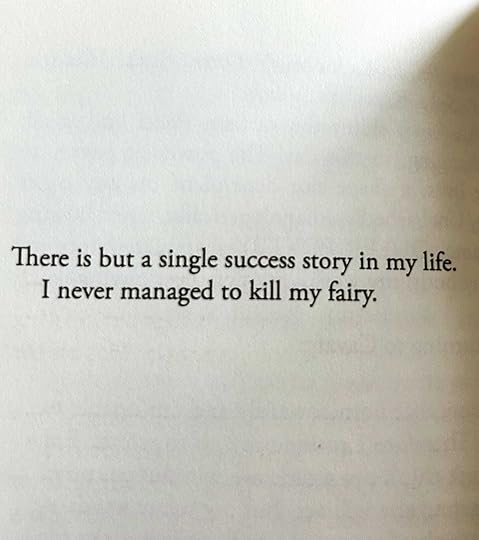 THIS WINTER.
GIRD YOUR LOINS: Reading & Writing Through Poetry Is Queer
with Kirby
THIS WINTER.
GIRD YOUR LOINS: Reading & Writing Through Poetry Is Queer
with Kirby“Oppressed peoples have been the same oppressed peoples my entire life: anything not straight, anything not conforming, anything not white.”
Sappho. Lorde. Clifton. Jordan. Rich. Nguyen. Brossard. Moure. Stein. Winterson. Michaels. Acker. Califia.
This is an extremely short list, but it will get you started, provide much needed strength, guidance, lust, and compassion for the daily.
I’ve had to come to a full stop here. Tears.
The special kinship often held between women and gays.
“There is no hierarchy of oppressions.” Audre Lorde in all her powers, clarity:
I was born Black and a woman. I am trying to become the strongest person I can become to live the life I have been given and to help effect change toward a livable future for this earth and for my children. As a Black, lesbian, feminist, socialist, poet, mother of two including one boy and member of an interracial couple, I usually find myself part of some group in which the majority defines me as deviant, difficult, inferior or just plain “wrong.”
I simply do not believe that one aspect of myself can possibly profit from the oppression of my other part of my identity. I know that my people cannot possibly profit from the oppression of any other group which seeks the right to peaceful existence. Rather, we diminish ourselves by denying to others what we have shed blood to obtain for our children. And those children need to learn that they do not have to become like each other in order to work together for a future they will all share.
“I simply do not believe that one aspect of myself can possibly profit from the oppression of my other part of my identity.”
Words. Given a voice. Body-shaping, life-changing words in a lifelong struggle of simply seeking to become and live the best of all possible lives and nothing less for the future of all.
It was this single sentence that first breathed air into the possibility that I don’t have to hate myself for being different.
Lorde, describing her own prose writings in 1982, said “They’re not academic; they’re a piece of my life-saving equipment.”
Lifesavers. All. That’s who these poets are and continue to be. What queer good fortune to have remarkable writers quicken us, take our hands, guide, give us a necessary push.
June Jordan, Who Look at Me:
I am stranded in a hungerland / of great pros- perity / shelter happens seldomly and / like an accident / it stops / No doubt / the jail is white where I am born / but black will bail me out... I trust you will remember how we tried to love / above the pocket deadly need to please / and how so many of us died there / on our knees... I am black alive and looking back at you.
Adrienne Rich, Heroines:
Exceptional / even deviant... The law says you can possess nothing / in a world / where prop- erty is everything... you give up believing / in protection / in Scripture / in man-made laws / respectable as you look / you are an outlaw.
Hoa Nguyen, Fortune Cookie No Fortune:
back then in Vietnam / “a mixed child was as good as dead” / remember the small wrapped cakes / they open to see a flower / wet eyelashes
Jeanette Winterson, Why Be Happy When You Could Be Normal?:
I was a woman. I was a working-class woman. I was a woman who wanted to love women without guilt or ridicule... The Left has taken a long time to fully include women as independent, as equals—and no longer to enfold wom- en’s sexuality into a response to male desire. I felt uncomfortable and side-lined by what I knew of left-wing politics. And I wasn’t looking to improve the conditions of my life. I wanted to change my life out of all recognition.
“I wanted to change my life out of all recognition.”
A single line, the will to imagine, to not conform, the will to do something completely different. To somehow be in this world.
It’s not a straight line.
It was these women who showed me I had a place at the table. Not men. Gay or other.
And that table was not exclusive. And shouldn’t be so now.
And Sappho. Here from her wonderful twitterfeed @sapphobot:
And what excites my mind, / Your laughter glittering. So, / when I see you, for a moment, / my voice goes, because I / prayed this word: / I want / may you sleep on the breast of your delicate friend.
She blazes. Beckons. Coaxes. Lights our way.
Thank you for reading Send My Love to Anyone. This post is public so feel free to share it.
from KIRBY Poetry is Queer Palimpsest Press Purchase / Audiobook
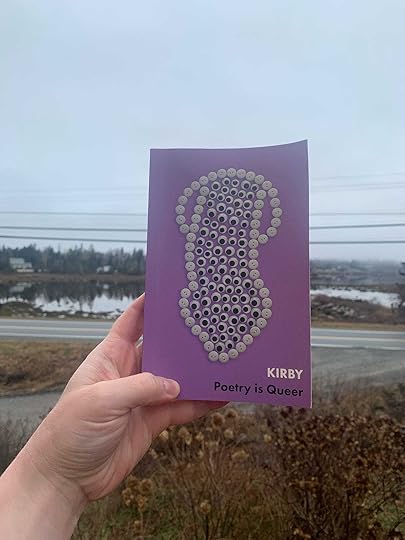
Lifesavers. All. That’s who these poets are and continue to be. What queer good fortune to have remarkable writers quicken us, take our hands, guide, give us a necessary push. - Kirby, Poetry is Queer
THIS WINTER. GIRD YOUR LOINS: Reading & Writing Through Poetry Is Queer with Kirby& it’s many queer outlaws/gay icons, poets, artists. A very rare opportunity to plumb the depths of a text & beyond with the author, including tons of new stories, sources, writing examples/tips and prompts. In Person & Online. Six Sunday afternoons beginning 14 Jan 2024. IN PERSON & ONLINE14, 21, 28 Jan / 11, 18, 25 Feb / 3-5PM Eastern
Required text: Poetry is Queer (additional materials provided).
Support Send My Love to AnyoneThis newsletter is free, but you can support it by signing up for a monthly or yearly subscription, liking this post, or sharing it!
Big heartfelt thanks to all of the subscribers and contributors who make this project possible!
ConnectTwitter | Bluesky | Instagram | Archive | Contributors | Subscribe
Mary-Lou Zeitoun | Issue 31
Send My Love to Anyone is a reader-supported publication. To receive new posts and support this project, consider becoming a free or paid subscriber.
A Palestinian-Canadian teen girl’s anxiety about climate change causes conflict with her family and makes it seem futile to plan for her future.
Excerpt from Jamilah at The End of the WorldAuthor’s Note about JamilahMy intention with this book was, although it’s about teen eco-anxiety, to show a Palestinian Canadian family in a less charged way than our culture has ever allowed. Palestinian Canadian families are typical Canadian families. You know, with hockey and tv and healthcare and squabbles. I wanted to insert into the Canadian lexicon that we can say “I’m Palestinian” without it being so charged, like how Italians can say simply, “I’m Italian.”
When the Hamas Israel war began October 7th with the unspeakable massacre of 1,200 Israelis and then the incomprehensible bombings of millions of Palestinians, the cover of my book, which looks like Gaza, became very charged. It’s in school libraries and I imagined it being stealthily pulled from the shelves. And at first, I wanted to shadow ban it myself. But now I see it can be a bridge, providing a more accessible way of understanding what being Palestinian Canadian means.
Against the background of Jamilah industriously building her bunker, the grandmother character remembers the original Nakba, when we were driven from our homes and Israel was created in 1948. The father complains about little degradations, like how hummus is called an Israeli food. Jamilah, who’s best friend is Jewish, babysits Syrian refugee kids who have survived bombing and teach her how to build a shelter.
I also wanted it to be known that there are Christian Palestinians (and my extended family is intermarried with Muslims and Jews around the world).
Many years ago, my first mentor Michael Helm suggested kindly that the mob isn’t going to stop and ask the difference when they’re after me. John Metcalf, the brilliant editor of my first novel “13” told me basically, not to write about being Palestinian. That it was not my fight. But it is my story. And now it is everyone’s fight.
Chapter 1: There is No Planet BMy name is Jamilah Mansour and I need to do something, because CLIMATE CHANGE. I’m seventeen. My dad is a Palestinian immigrant from, like, thirty years ago and my mom is old-timey Anglo Canadian. He’s a pharmacist and Mom’s a naturopath. We live Toronto, Canada. So that’s like a normal background here, really. It’s me, Mom and Dad, my fifteen-year-old sister Noor, my twelve-year-old brother George and Teta (pronounced “Tayta”) in the granny suite downstairs.
To be honest, my bunker obsession had been going on for a while. I think it started when I was little and saw a Totally Awful American Hurricane on TV—the desperate people in gridlocks on highways and trapped in stadiums. The worst thing in the TV coverage was the families waiting on roofs. There was a dog they had to leave behind because it couldn’t fit into the ‘copter swing. When the camera pulled back you could see the animals left behind, the cats miserable and terrified smudges in the corners because cats hate open spaces and loud noises. That’s what got me. I think I have PTSD from seeing the people on the roofs and the pets dying.
So I just needed to build a safe place, to prepare and protect ourselves in case of a climate disaster. Sure, people like my sister Noor go to protests and marches all the time. But what’s the point of marches? People have been marching since the eighties and climate’s, like, worse now. In fact, I don’t even see the point of going to university. I’d rather spend my time doing something useful. By the time I got my basic, general BA (because my math scores were so bad, even though I love science, I couldn’t go into science), the world would have imploded into anarchic city states run by militia. Because—hello—CLIMATE CHANGE. I figured I could use the time to convert the garage into an off-the-grid tiny house. A bunker, really. In case you didn’t know, a bunker is a doom room, a safe space, a place where you store food, water and even weapons. I was even going to find a way to get a generator.
We were in a terrible heatwave when I first inspected the garage out back for bunker possibilities. I went out back and pulled on its side door. It stuck at firs, then popped open. A waft of mildewy air hit my face as I looked around. I saw an elliptical machine and a recumbent exercise bike, moved out of the basement when Teta got here. Leaning against a full-length cracked mirror was a half-rolled carpet. In the middle was a big, green painted dresser with a black garbage bag squatting on top of it, half open and spilling baby clothes. I opened a dresser drawer. It was empty except for a scattering of mice poop. The space was about ten by fourteen feet. The cinderblock element was good. You could do a lot with cinderblock.
Yes, this would make an excellent bunker. I slowly turned. One wall was lined with rickety shelves of plastic bins. Our leaking fiberglass canoe hung from the ceiling (I’d have to save that in case of a flood). Past the jumble of busted bikes by the door was an entire shelf filled with broken coffee makers, lamps and even ashtrays from when Mom used to smoke. I could work with this. No one was using the garage anyway. Mom and Dad never parked the car in it because the alley was too narrow. So the garage was always used it as, let’s face it, a dumping ground. Mom had painted the wall that faced the backyard bright blue with a fake window, complete with a flower box, which looked totally pathetic and not cheerful.
I approached Mom and Dad at breakfast. CBC was muttering in the background as always. Mom was having her protein shake with organic blueberries, organic whey protein and flax seed oil. She was all about clean eating and crystals. And she bleached her hair. I’m just saying. Even though she was a vegetarian masseuse, she put purple streaks in her hair that, I liked to remind her, required a highly toxic bleaching process first.
Dad was eating za’atar, dipping pieces of pita into the dried herbal mixture of thyme, sumac and sesame seeds. He was very picky about his za’atar, buying only Palestinian and even scoffing at the Lebanese and Syrian formulas. Dad’s a pretty mild guy. But if you want to make him mad, show him an Israeli fusion restaurant menu that lists za’atar, or any Palestinian food, as Israeli cuisine. Whew! He’ll like, yell at the manager.
Otherwise, we are not very political. We are Christian Arabs, which is really annoying because nobody thinks that’s a thing (It’s Jesus of NAZARETH, not DUBLIN— jeez). Uncle Gabrielle always says, “The angry mob isn’t going to stop to ask this difference,” when we come up against Islamophobia. Aunt Lily, who writes a lifestyle blog for the Globe and Mail, nods. She gets a lot of snooty readers who are surprised she is so sophisticated and Palestinian. The most we ever do Palestinian-wise is go to folk dances at the Arab Centre, eat Arabic food and, lately, translate and volunteer with the Syrian refugees. Okay, we go to the Toronto Palestinian Film Festival every fall too. It’s true, sometimes my grandmother, who lives downstairs, cries because she remembers things from the old country. Anyway, I am not political that way. My best friend Vivian and I never talk about it, and she’s Jewish. I mean, she has birthright and goes to Israel every year. So when she goes for vacation, we always give her things to give to my great aunts in Haifa.
I sauntered over to Dad and tore a piece of bread to dip into the olive oil and then the za’atar. “Can I clean out the garage?” I asked, chewing.
“I would love for you to clean out the garage,” said Mom. “I would even pay you for the job!”
“Thank you!” I headed back out to the garage. “It will make an excellent bunker.”
“No, then we’ll use it to park the car!” she called after me.
I came back. “Mom, we need to have a safe space off the grid in case of natural disaster or power outage. Don’t you understand?” I asked.
“Why do you worry about these things?” asked Dad. “Put your energy into University.”
I hadn’t told them I wasn’t going yet.
“Did you have your calm tea today? “asked Mom. “I made a batch for you. It’s in the fridge.”
“You know what would make me calm?” I asked. “Knowing we had a safe house when the power grid goes down.”
“This is not the end of the world.” said Dad. “In Gaza they just take the power away all the time. It comes back.”
“You know what?” I said. “What if it doesn’t come back? Like, because there isn’t any? Cause your generation used it all up!”
“It’s that Desmond with his conspiracy theories that’s making you like this!” said Mom.
Oh, here we go. Desmond is my childhood buddy and he’s a touchy subject. Mom thought he needed a diagnosis. He is smart and funny, but he had smoked so much pot since like, age eleven, that all he did was hang in his parents’ basement, play video games and sext stupid basics.
I didn’t even know how they could type, these girls were so basic. I’m so hot for you, they typed, probably crippled as much by their fake nails as their feeble brains. They probably got more confused figuring out the logistics of their reflection selfies than a cat looking in the mirror for the first time.
It’s true that Desmond followed conspiracy theories. I mean, he was still on the 9/11 conspiracy. He is mixed Black, so I kept telling him that he didn’t even need a theory to be paranoid, that the culture is actually, openly against him. It’s right out there. He and I used to go to the games store and skateboard and roam the city on the TTC together. But when he started smoking more, we just ended up hanging out on his couch and watching Lord of the Rings-type movies. He was very into those old timey medieval sagas. Put an actor in armor and give him an English accent and Desmond was down.
Maybe I didn’t like the insta girls because I couldn’t be like that. Insta was thirsty and embarrassing, yes, but I honestly didn’t have the confidence to post. I’m a thicker girl. Even though that’s almost cool now, skinny girls still rule. They are like another species to me. My interactions with boys had been limited to a little kissing at parties and having crushes on actors. In the interest of having a life the year before, I hooked up with Marley a few times at his house. Marley had brown sweeping eyebrows and a square jaw and those carved square thumbs boys have (there’s a reason why I was with him). But I felt like Marley forgot I was there when he was touching me. Apparently, you are supposed to be so attracted you don’t care about that stuff.
Desmond was tall with broad shoulders and he would have been cute if he didn’t always look like he’d been hit by a tranquilizer gun. And if he didn’t smell funky. Honestly, he was barely human anymore, let alone male. I also think the chicks he was texting were getting skankier and skankier because he had no sex drive left. Vivian, who is in her second year of psychology at university (she’s incredibly smart and went early) says if you become an incredibly creative masturbator or get too into porn, then you can’t have regular sex any more. Desmond was not going to university either. He actually hadn’t gone to school last year for one day. ONE DAY. His parents didn’t even realize it.
“No, Mom,” I said to my mom’s suggestion. “It’s not Desmond. Even Toronto Hydro says so! Look!” I ran to the jumble of mail on the kitchen counter and grabbed the hydro bill.
I had started reading and rereading the brochures that came with the hydro bills, searching for clues that they were warning us the power grid was going to fail. Even the way the hydro bill was designed was getting alarming.
Summer storm a brewing? Don’t be caught off guard. Update your 72 hour emergency kit so you’re set all summer. Add extra bottled water, rain gear and sunscreen. Don’t forget to check batteries and to make sure the kit is waterproof.
Mom looked at the scary, cheerful brochure. The winter one had said, “Be Prepared” next to stick figures of a mom, a dad and a kid. Under the stick figures was a snow cloud with lightning coming out of it. The stick family had blank circle faces and didn’t seem at all upset about the weather. “Winter is Coming.” said the brochure (like hydro had never heard of that cosplay fantasy show or, like, worse, there was some dank nerd in the copy department who got away with it). Then it listed ways to protect yourself. MOST scary: fill your vehicle with gas.
“We don’t even have a 72-hour emergency kit!” I looked at my Dad. He was totally chill and still eating his zaatar. “Dad, I think we at least need to store water,” I said. “Can we buy more water bottles? The big kind?”
“This is expensive. We will fill what we have with the tap water.” Dad was of the opinion that Toronto tap water was the best in the world. Whenever we came home from Montreal or the US to visit our cousins, he’d get a glass of water from the sink and go. “Ahhh, delicious Toronto tap water.”
“Okay, but the tap water is filled with estrogen and mercury,” I said.
He shrugged.
Dad didn’t argue the need for hoarding water, because hoarding water was normal in the old county. He just didn’t want to waste money. We were so in debt for our shabby west-end Victorian brownstone it wasn’t funny. Our house was basically rotting. It had a great front porch, but the floorboards creaked and sagged, and the railing was wobbly. Our roof was dotted with little cages, supposed to prevent and capture any squirrels trying to sneak in. The bricks were crumbling and the backyard lawn was mostly weeds, with a BBQ and plastic chairs on concrete pavers. Noor had made some little fairy gardens in some corners and under bushes, which was kinda of cute.
Noor is a genius and super condescending. She hates that I am so emotional and messy, and is always calling me needy. (Noor ironically means “light” and yes, she does think she is Queen Noor of Jordan). Noor gets away with everything, including being queer, which my Mom loves and Dad ignore. I, as the oldest girl, got away with NOTHING while Dad was trying to figure out what was cool for girls in Canada. Of course, then George the total Prince comes along and he gets whatever he wants. Downside for George—they are already grooming him to be a doctor. I keep failing math, so they expect me to be, like, a receptionist.
The only thing Noor and I agree on is global warming, but we have different approaches. She’s all activist and makes signs and does school strikes and marches. She marches for everything: BLM, LGBTQ rights, Indigenous sovereignty. She is Miss Intersectional. I had gone to a few school strikes and marches with her, but got terrible anxiety when I was suddenly crushed by people and couldn’t move in front of Queen’s Park. At one point I had to pee really bad, so I tried to squeeze through one of those metal guardrails. It toppled over and I fell with it, scraping my knee. A cop helped me up and led me out of the crowd. I just took the subway home alone with that bleeding knee, clutching my sign that said There is No Planet B upside down. So yeah, I am not into protests.
Thank you for reading Send My Love to Anyone. This post is public so feel free to share it.
© 2021 by Mary-Lou Zeitoun. From Jamilah at The End of the World. Used with permission of Lorimer Books.
Mary-Lou Zeitoun is a Canadian Palestinian author, essayist, arts journalist and editor. Her novels include 13 (Porcupine’s Quill) which was awarded the 2008 New England Book Festival Award, and Jamilah at The End of the World (Lorimer 2022) about a Palestinian Canadian girl with eco anxiety.
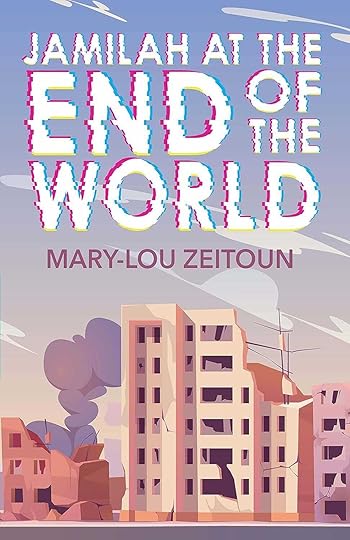 Text within this block will maintain its original spacing when published
Jamilah at the End of the World
by Mary-Lou ZeitounLorimer Books, Children and Teens, 2021
Text within this block will maintain its original spacing when published
Jamilah at the End of the World
by Mary-Lou ZeitounLorimer Books, Children and Teens, 2021Order Jamilah at the End of the World from Lorimer Books or your favourite independent bookstore.
A Palestinian-Canadian teen girl’s anxiety about climate change causes conflict with her family and makes it seem futile to plan for her future.
When electricity over-consumption during a summer heat wave causes a city-wide blackout, Jamilah’s eco-anxiety kicks into high gear. After years of doomscrolling and being inundated by warnings of a looming climate change catastrophe, she knows this is it — the end for the planet and life as she knows it. So why is no one in her family taking her plans to save them by converting the garage into a bunker, stockpiling LÄRABARs or using her university fund to buy a generator seriously? Is it really up to Jamilah to save the world on her own?
Support Send My Love to AnyoneThis newsletter is free, but you can support it by signing up for a monthly or yearly subscription, liking this post, or sharing it!
Big heartfelt thanks to all of the subscribers and contributors who make this project possible!
ConnectTwitter | Bluesky | Instagram | Archive | Contributors | Subscribe
December 5, 2023
Gatherings | Issue 31
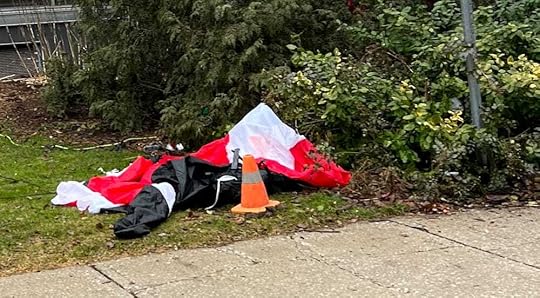 December 24, 2023, London, OntarioMy News
December 24, 2023, London, OntarioMy NewsAnecdotes has gone into a second printing, which I’m very excited about! Thanks to everyone who has bought and shared this book!
I was over the moon to discover Michael Bryson has written a review of Anecdotes alongside a review of Daughter by Claudia Dey, which I’m very excited to read.
I also recommend subscribing to Michael’s Substack where you’ll find original writing by Bryson along with wonderful reviews and other “scribblings”.
Toronto friends Anecdotes e-book now available at the TPL!
I have a reading coming up in Victoria on Thursday January 25 at the Wild Prose Reading Series hosted by Susan Sanford Blades.
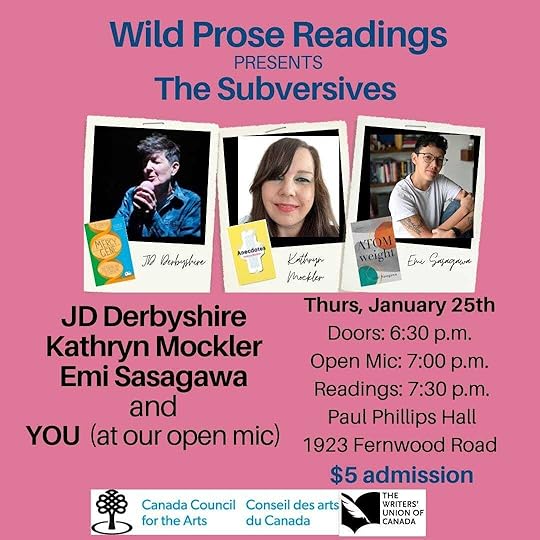 Gatherings
GatheringsGreat conversation between Sim Kern and Rashid Khalidi
“Revision” by Hala Alyan
legshernandez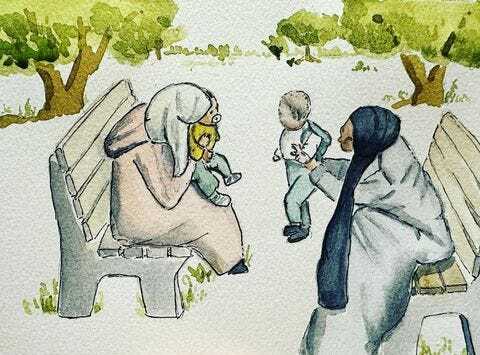 A post shared by @legshernandez
A post shared by @legshernandezMichael V. Smith on the Unexpected Journey of His Spectacular Seventh Book, Queers Like Me, Open Book
I’m currently reading Only Sisters by Lilian Nattel and loving it for Nattel’s portrayal of deeply complex family dynamics.
Writer admits to review-bombing, New York Times
Jessica Westhead is teaching an online fiction course at U of T! Register now. Also check out Westhead’s excellent new short fiction collection, Avalanche, which I’m also reading.
Lisa Bird-Wilson in conversation with Tim Blackett about his new story collection Grandview Drive (Nightwood Books).
Sign up for Reading & Writing through Poetry is Queer with Kirby (in person & online)
Calls for Submission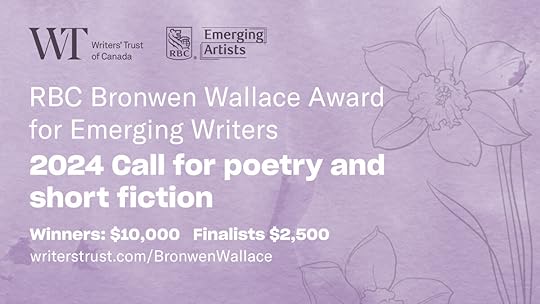 traps_mtl
traps_mtl
 A post shared by @traps_mtl
A post shared by @traps_mtlRoom Magazine has put together a list of submission opportunities for writers
Send My Love to Anyone contributor Francine Cunningham is judging the Short Prose Competition for Emerging Writers from the Writers Union of Canada
Recommended Substacks Art / Life: Scribblings by Michael BrysonBook ReviewsAnecdotes by Kathryn Mockler (2023) Daughter by Claudia Dey (2023) As I considered how to begin a review of Anecdotes, Kathryn Mockler's new (2023) "instant 'post hope' classic" — more on that quotation in a moment — I took a peak at theglobeandmail.com and caught this headline: …Read more16 days ago · 2 likes · 1 comment · Michael Bryson
Art / Life: Scribblings by Michael BrysonBook ReviewsAnecdotes by Kathryn Mockler (2023) Daughter by Claudia Dey (2023) As I considered how to begin a review of Anecdotes, Kathryn Mockler's new (2023) "instant 'post hope' classic" — more on that quotation in a moment — I took a peak at theglobeandmail.com and caught this headline: …Read more16 days ago · 2 likes · 1 comment · Michael Bryson Poetry in PlayDecember 10, Human Rights DayThe celebration first. If you are in London ON, join us for Carols & Poems today 3-4:30 at Grosvenor Lodge. A little sneak peak of a rehearsal with Lucas Tenzen. This is an excerpt from my poem called ‘Synaesthetics’ (Barbaric Cultural Practice): . https://www.facebook.com/messenger_media/?attachment_id=1348211156083463&message_id=mid.%24cAABa9DVeQt2ShSG…Read more16 days ago · 3 likes · Penn Kemp
Poetry in PlayDecember 10, Human Rights DayThe celebration first. If you are in London ON, join us for Carols & Poems today 3-4:30 at Grosvenor Lodge. A little sneak peak of a rehearsal with Lucas Tenzen. This is an excerpt from my poem called ‘Synaesthetics’ (Barbaric Cultural Practice): . https://www.facebook.com/messenger_media/?attachment_id=1348211156083463&message_id=mid.%24cAABa9DVeQt2ShSG…Read more16 days ago · 3 likes · Penn Kemp The Audacity.SuicidesEvery two weeks or so I am publishing an essay from an emerging writer. This week, we are publishing “Suicides” by Aishah Simone Smith. Aishah is a Brooklyn native and novice writer who has had a thirty-year career in law and advocacy. She writes from the intersection of race, trauma and mental illness…Read more6 days ago · 202 likes · 38 comments · Aishah Simone
The Audacity.SuicidesEvery two weeks or so I am publishing an essay from an emerging writer. This week, we are publishing “Suicides” by Aishah Simone Smith. Aishah is a Brooklyn native and novice writer who has had a thirty-year career in law and advocacy. She writes from the intersection of race, trauma and mental illness…Read more6 days ago · 202 likes · 38 comments · Aishah Simone Reframeables Podcast and NewsletterReframing Trauma Through Pop Culture with Jen Sookfong LeePop culture is supposed to be light — downright breezy. Or, as we discovered in our conversation with celebrated Canadian author Jen Sookfong Lee, it can be something more: a bridge to navigating the complexities of intergenerational trauma, reckoning with one’s place in the world, and, perhaps most poignantly, facing the self. We hope you are able to t…Read more2 months ago · 1 like · Rebecca Davey and Natalie Davey
Reframeables Podcast and NewsletterReframing Trauma Through Pop Culture with Jen Sookfong LeePop culture is supposed to be light — downright breezy. Or, as we discovered in our conversation with celebrated Canadian author Jen Sookfong Lee, it can be something more: a bridge to navigating the complexities of intergenerational trauma, reckoning with one’s place in the world, and, perhaps most poignantly, facing the self. We hope you are able to t…Read more2 months ago · 1 like · Rebecca Davey and Natalie Davey The Art of Flash Fiction Time, Movement, Change: The Engine of Flash “Persistence of Memory” ~Salvador Dali, 1931 Hi friends, The Art of Flash Fiction is a reader-supported publication. To receive new posts and support my work, consider becoming a free or paid subscr…Read more11 days ago · 42 likes · 19 comments · Kathy FishSupport Send My Love to Anyone
The Art of Flash Fiction Time, Movement, Change: The Engine of Flash “Persistence of Memory” ~Salvador Dali, 1931 Hi friends, The Art of Flash Fiction is a reader-supported publication. To receive new posts and support my work, consider becoming a free or paid subscr…Read more11 days ago · 42 likes · 19 comments · Kathy FishSupport Send My Love to AnyoneThis newsletter is free, but you can support it by signing up for a monthly or yearly subscription, liking this post, or sharing it!
Big heartfelt thanks to all of the subscribers and contributors who make this project possible!
ConnectBluesky | Instagram | Archive | Contributors | Subscribe
December 2, 2023
Send My Love to Anyone | Issue 30

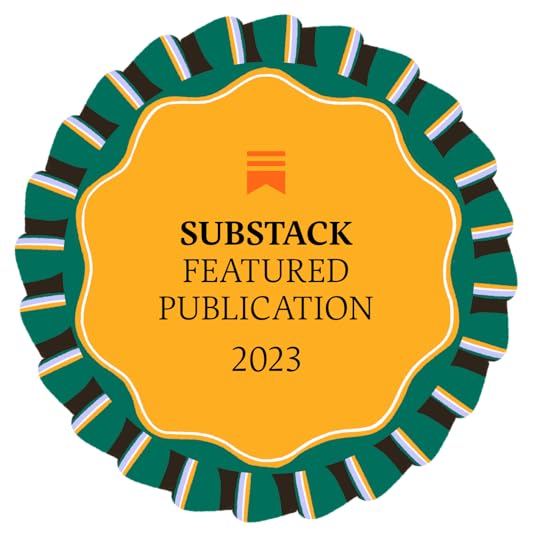
Hello friends,
In Issue 30 of Send My Love to Anyone, you’ll find excerpts of new books by Gary Barwin, D. M. Bradford, Michael V. Smith, and Sandra Ridley, and the latest round up for Send My Love to Anyone Gatherings.
Hope you enjoy!
Kathryn
Send My Love to Anyone is a reader-supported publication. To receive new posts and support my work, consider becoming a free or paid subscriber.
Darby Minott Bradford is a poet and translator based in Tio’tia:ke (Montreal). Bradford is the author of Dream of No One but Myself (Brick Books, 2021), which won the A.M. Klein Prize for Poetry, was longlisted for the Grand Prix du livre de Montréal, and …","size":"lg","isEditorNode":true,"title":"D.M. Bradford | Issue 30","publishedBylines":[{"id":21201715,"name":"Kathryn Mockler","bio":"Kathryn Mockler's is a writer, professor, and publisher and author of the story collection Anecdotes (Book*hug Press). ","photo_url":"https://substack-post-media.s3.amazon... My Love to Anyone","publication_logo_url":"https://substackcdn.com/image/fetch/f...
Michael V. Smith has published six previous books, which include three collections of poetry, a memoir, and two novels. Also an award-winning filmmaker, drag queen, and professor, Smith teaches at UBC Okanagan, in Kelowna, BC, whe…","size":"lg","isEditorNode":true,"title":"Michael V. Smith | Issue 30","publishedBylines":[],"post_date":"2023-10-06T18:54:37.521Z","cover_image":"https://substackcdn.com/image/fetch/f... My Love to Anyone","publication_logo_url":"https://substackcdn.com/image/fetch/f...
Sandra Ridley is the author of four books of poetry: Fallout; Post-Apothecary; The Counting House; and Silvija, a finalist for the 2017 Griffin Poetry Prize. She has won the bpNichol Chapbook Award, Saskatchewan Book Award for Publishing,…","size":"lg","isEditorNode":true,"title":"Sandra Ridley | Issue 30","publishedBylines":[],"post_date":"2023-10-06T18:57:07.930Z","cover_image":"https://substackcdn.com/image/fetch/f... My Love to Anyone","publication_logo_url":"https://substackcdn.com/image/fetch/f...
","size":"lg","isEditorNode":true,"title":"Gatherings | Issue 30","publishedBylines":[{"id":21201715,"name":"Kathryn Mockler","bio":"Kathryn Mockler's is a writer, professor, and publisher and author of the story collection Anecdotes (Book*hug Press). ","photo_url":"https://substack-post-media.s3.amazon... My Love to Anyone","publication_logo_url":"https://substackcdn.com/image/fetch/f... Send My Love to Anyone
This newsletter is free, but you can support it by signing up for a monthly or yearly subscription, liking this post, or sharing it!
Big heartfelt thanks to all of the subscribers and contributors who make this project possible!
ConnectTwitter | Bluesky | Instagram | Archive | Contributors | Subscribe
November 22, 2023
Gatherings | Issue 30
Candice Fertile reviews Anecdotes for The British Columbia Review
Thanks to Lori Hettler for reviewing Anecdotes on TNBBC
I wrote about my short story “I Won’t Clean the Tub” for Book*hug’s Blog
For 49th Shelf, I recommended 7 Tragicomic Books that I Love
An interview with All Lit Up
GatheringsThe Agony of Waiting for a Ceasefire that Never Comes by Mosab Abu Toha, The New Yorker
Donate to Independent Jewish Voices, Canada
An Open Letter in Support of the Scotiabank Protestors at the Giller Prize Ceremony
Canadian writers ask Giller prize to drop charges against pro-Palestinian protesters, The Guardian
Public division over Israel-Hamas war spills into the arts world, The Globe and Mail
hala.n.alyan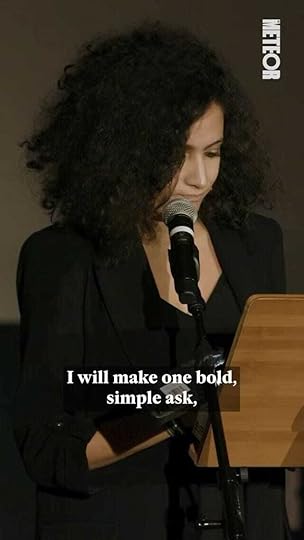 A post shared by @hala.n.alyansteve.collis
A post shared by @hala.n.alyansteve.collis
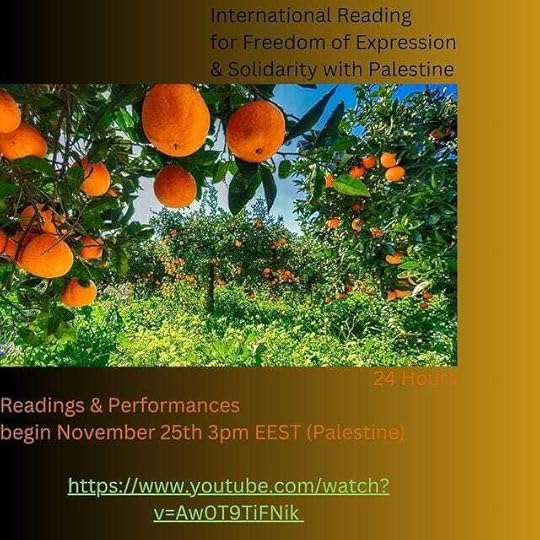 A post shared by @steve.collis
A post shared by @steve.collisThree Poems by Nyla Matuk, Bad Lilies
Sweetness | מתיקות by Anna Swanson, CBC Poetry Prize Shortlist
Congratulations to Helen Humphreys who won the Matt Cohen Award: In Celebration of a Writing Life
The Ex-Puritan is hiring a publisher
The Balanced Creative Podcast, Spilling the Tea on Self Promo for Writers with Sophie Jai
Check out this interview with Carleigh Baker on Nathan Whitlock’s podcast about newish books, What Happened Next
Support Andrew Dundas’ ALS Challenge and check out his blog where he is writing about his journey
David Naimon interviews Lydia Davis, Between the Covers Podcast
SMLTA contributor D.A. Lockhart has a new book of poetry out with Kegedonce Press
Writers Union advice if your book is being used to train AI without your consent
SHARP NOTIONS: Essays from the Stitching Life, Edited by Marita Dachsel and Nancy Lee
The Rise of Pronatalism by Nandita Bajaj, Counter Punch
A concerning scam for authors: I Would Rather See My Books Get Pirated Than This (Or: Why Goodreads and Amazon Are Becoming Dumpster Fires) by Jane Friedman
Robot Conference, United Nations
How TV Writing Became a Dead-End Job, NYT
Honey Crisp by Molly Peacock, The Walrus
“The question is open”: A Conversation with Eugene Lim, Another Chicago Magazine
“Things could be worse may be one of those lies that allows us to live, obscuring the truer truth: Things will be worse.” On Self-Pity: Go Eat Worms by Elisa Gabbert, Poetry Magazine
How to Write Alt Text and Image Descriptions
Lydia Davis: Ten of My Recommendations for Good Writing Habits, Lit Hub
What I’ve ReadLindsay Wong’s prose is flawless and these vivid stories play like movies in your head as you read them. While the cannibalism, leeches, incest, demons, and other horror (and often comedic) elements do get your attention, these are rich literary stories of oppression, betrayal, and complicated family dynamics.
themockler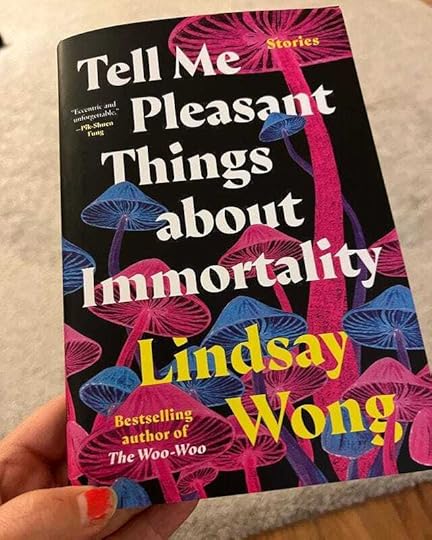 A post shared by @themocklerWhat I’ve Been Reading
A post shared by @themocklerWhat I’ve Been ReadingI’ve just started Grandview Drive a loosely connected collection of fiction. Tim Blackett is coming to talk to my class about this book, his bookclub, podcast, and TikTok account, which blew up this year.
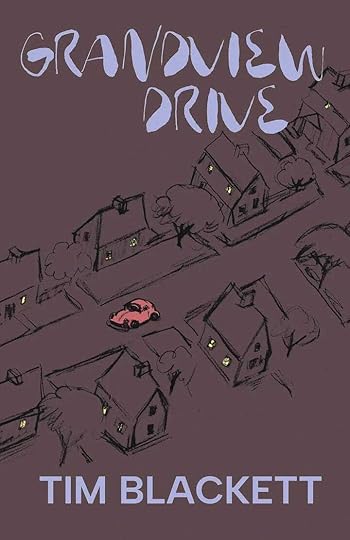 What’s on My TBR Pile
What’s on My TBR Pile
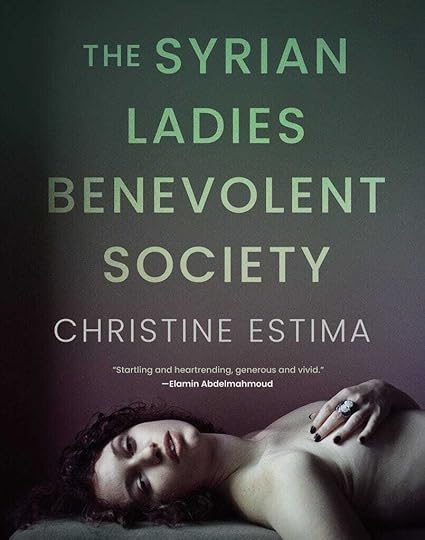
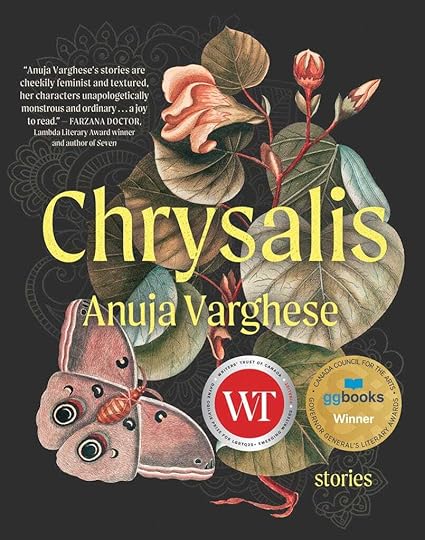
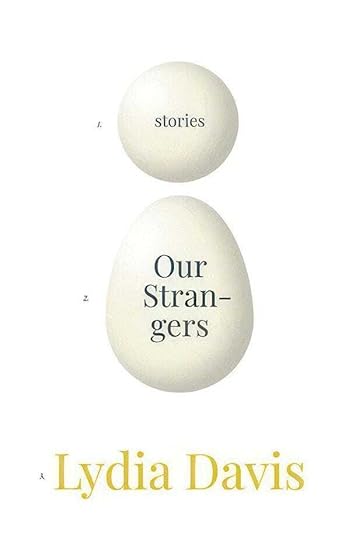
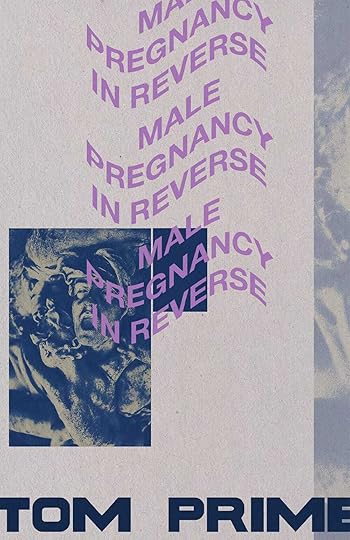 Recommended Substacks
Recommended Substacks SubMakkI Wrote Five Books With ADHDI’m one of those women who wasn’t diagnosed with ADHD until her 40s. In the elementary schools of the 1980s, the only kids being diagnosed were little white boys named Jason, ones who’d fall out of their desks and shoot rubber bands at the guinea pig tank. BIPOC kids’ attention inconsistency was very often seen as a discipline issue. And girls—much less…Read more13 hours ago · 107 likes · 14 comments · Rebecca MakkaiGeorge TolesThe “New You”The "new you" kept telling the "old you" that there was no place for him in the psyche any more. He deserved to expire because of his inherent uselessness. He was just a mass of destructive, chaotic proclivities. But the "old you" was patient, and had weathered a host of "improvements" since the self's foggy, soggy foundation. This was far from the firs…Read more12 hours ago · 3 likes · George Toles
SubMakkI Wrote Five Books With ADHDI’m one of those women who wasn’t diagnosed with ADHD until her 40s. In the elementary schools of the 1980s, the only kids being diagnosed were little white boys named Jason, ones who’d fall out of their desks and shoot rubber bands at the guinea pig tank. BIPOC kids’ attention inconsistency was very often seen as a discipline issue. And girls—much less…Read more13 hours ago · 107 likes · 14 comments · Rebecca MakkaiGeorge TolesThe “New You”The "new you" kept telling the "old you" that there was no place for him in the psyche any more. He deserved to expire because of his inherent uselessness. He was just a mass of destructive, chaotic proclivities. But the "old you" was patient, and had weathered a host of "improvements" since the self's foggy, soggy foundation. This was far from the firs…Read more12 hours ago · 3 likes · George Toles M I R A B I L A R Ymy resignation I have resigned as poetry editor of The New York Times Magazine. The Israeli state's U.S-backed war against the people of Gaza is not a war for anyone. There is no safety in it or from it, not for Israel, not for the United States or Europe, and especially not for the many Jewish people slandered by those who claim falsely to fight in their names. Its …Read more6 days ago · Anne BoyerSupport Send My Love to Anyone
M I R A B I L A R Ymy resignation I have resigned as poetry editor of The New York Times Magazine. The Israeli state's U.S-backed war against the people of Gaza is not a war for anyone. There is no safety in it or from it, not for Israel, not for the United States or Europe, and especially not for the many Jewish people slandered by those who claim falsely to fight in their names. Its …Read more6 days ago · Anne BoyerSupport Send My Love to AnyoneThis newsletter is free, but you can support it by signing up for a monthly or yearly subscription, liking this post, or sharing it!
Big heartfelt thanks to all of the subscribers and contributors who make this project possible!
ConnectTwitter | Bluesky | Instagram | Archive | Contributors | Subscribe
November 13, 2023
When the Sun Goes Down
When the sun goes down, close your eyes, and I’ll tell you a story.
It’s a story about a wave—a big one, the kind that threatens an undertow if you’re not careful.
This is not advice but a warning.
In this story, I will be a stone, and you can be a seashell or a fishbone or the head of a plastic doll with blue hair someone’s child left behind. On the ride home, when the child remembers the doll, his favourite doll, whose head he gleefully ripped from its body and tossed aside, he cries out—a long and remorseful cry—but it’s too late to turn back now and retrieve it.
The trick, if there is one, is to wash up on the shore and not get dragged down to the bottom of the ocean.
Sometimes the water is calm, but not today, not in this story.
Yes, of course, if you want to be a grain of sand, then be a grain of sand, but you won’t necessarily fare any better.
Originally published in The Litter I See Project in July 2023. The Litter I See Project supports literacy. With thanks to Carin Makuz who founded this project and invited me to participate.
About The Litter I See ProjectEach writer is given a picture of litter with the request that they submit a response in any form. The idea is to create awareness and conversation about the problems of both illiteracy and litter in our communities. Carin Makuz has chosen to support Frontier College specifically for their history and ongoing work to increase literacy from coast to coast to coast. All donations made to the Litter I See Project go directly to Frontier College through their website.
This is the photo I received.
 Photo by Carin Makuz
Photo by Carin MakuzKathryn Mockler is the author of the story collection Anecdotes (Book*hug Press, 2023). She co-edited the print anthology Watch Your Head: Writers and Artists Respond to the Climate Crisis (Coach House Books, 2020) and is the publisher of the Watch Your Head website. She runs the literary newsletter Send My Love to Anyone.
Support Send My Love to AnyoneThis newsletter is free, but you can support it by signing up for a monthly or yearly subscription, liking this post, or sharing it!
Big heartfelt thanks to all of the subscribers and contributors who make this project possible!
ConnectTwitter | Bluesky | Instagram | Archive | Contributors | Subscribe
October 10, 2023
Book News, My Virtual Launch, and an Issue 30 Sneak Peek!
Enter in the 49th Shelf Book Giveaway
Hello friends,
I’m interrupting this regularly scheduled newsletter to let you know about some book events I have coming up and to share a sneak peek of Issue 30!
My debut short story collection was released on September 19th by Book*hug Press.
Last month, I wrote about how I’m approaching marketing and promoting my book. So far so good. Just because I do it, doesn’t make it easy. I will be writing more in the coming months about my adventures (the ups and downs) in hopes that it helps other small press writers.
Because I know the book graveyard is hard on my heels, I’m trying to do whatever I can to help this little book reach readers in its first year. I’m passionate about my subject matter and themes—my autofictional #metoo stories, the connection between violence and environmental crisis, climate grief, and mental health.
In addition to publishing and sharing the work of others, Send My Love to Anyone has been an important part of my writing process. In fact, I started it in order get over writer’s block. I don’t think I could have completed my book without it, and, of course, my amazing editor, Malcolm Sutton, who also designed the book and cover illustration.
Over the last three years, I’ve written both directly and indirectly about the creation of this book. I wrote about having trouble getting focused and how ADHD impacts my writing, I pondered what we owe the people we write about, I shared an excerpt, I confessed to dealing with performance anxiety, and I explained why I didn’t used to write about periods. I also included a companion essay to my story “Contest” about a haiku controversy I was embroiled in many years ago.
So thank you to everyone who has subscribed, shared, and interacted with Send My Love to Anyone—with my musings and the work of many writers I admire including SMLTA columnist Kirby.
I have some book events coming up which I will share below!
You can expect Issue 30 of Send My Love to Anyone at the end of the month. For now, enjoy a sneak peek—excerpts from Gary Barwin’s essay collection, Imagining Imagining: Essays on Language, Identity and Infinity and D.M Bradford’s new poetry book, Bottom Rail on Top.
Have a new book out? I’ve updated the About page. While I don’t take pitches or submissions at the moment, free or paid subscribers are welcome to send along their book or event info, press releases, or arcs for consideration for excerpt publication or mention in Gatherings.
Please note, I may not be able to respond to all requests.
Kathryn
Please join me for the virtual launch of Anecdotes on Sunday October 15, 2023 at 3:00pm (PST) | 6:00pm (EST)But I’m pretty excited about my virtual launch on October 15 which will be hosted by Junction Reads, an amazing prose reading series in Toronto founded and run by Alison Gadsby.
Tickets are PWYC, starting at $5.00 which normally go to the author, but I’m donating all proceeds from this event to Raven Trust.
Free tickets are available by contacting Alison.
themockler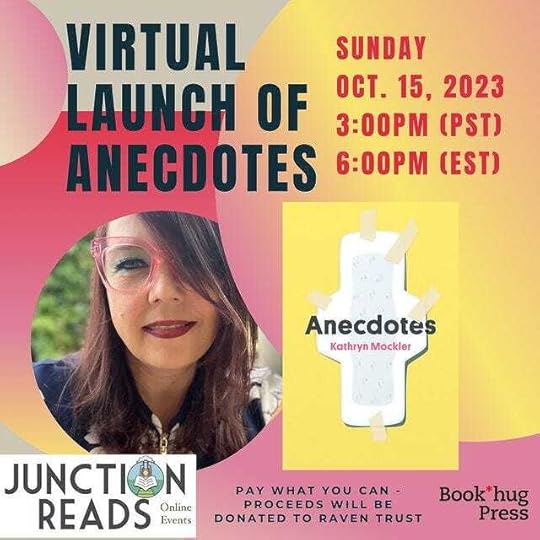 A post shared by @themocklerAnecdotes Book Tour
A post shared by @themocklerAnecdotes Book TourI’m going on a multi-city (Toronto, Montreal, Ottawa) tour with Michael V. Smith (Queers Like Me) and Sandra Ridley (Vixen).
Hana Shafi (People You Know Places You’ve Been) will be joining us in Montreal.
I’ll also be reading at the Writers Read Series at Concordia University (see poster below) and Wordsfest in London, Ontario (details TBA)
 7 Tragicomic Books that I Love, 49th Shelf
7 Tragicomic Books that I Love, 49th ShelfFor 49th Shelf’s blog, I wrote about 7 Tragicomic books that I Love. Funny-sad is my favourite thing to read. I hope you read and enjoy these books as much as I do.
49th Shelf is also doing a book giveaway which includes Anecdotes.
bookhugpress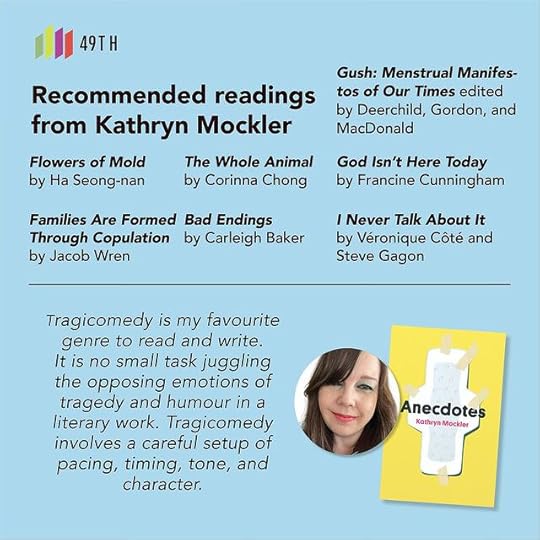 A post shared by @bookhugpress
A post shared by @bookhugpressI’m not going to lie, keeping up with all of this is difficult especially because I have ADHD. By the way, I just found out October is ADHD month, so I thought I would share my post from last year about my own experience getting late diagnosed. I can’t take the meds so navigating it without any relief is a constant struggle.
Send My Love to Anyone is a reader-supported publication. To receive new posts and support this project, consider becoming a free or paid subscriber.
Press SiblingsI’m excited to share excerpts from my Book*hug Press and tour siblings, Michel V. Smith (Queers Like Me) and Sandra Ridley (Vixen)!
They are both stunning poets, and I know you will love these poems as much as I do.
themockler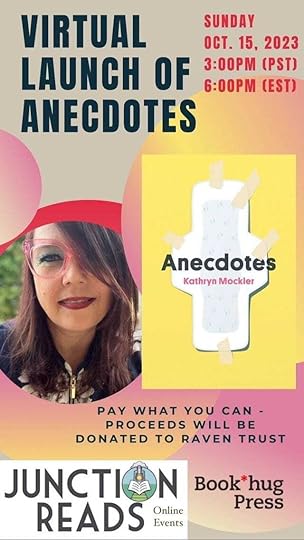 A post shared by @themocklerSupport Send My Love to Anyone
A post shared by @themocklerSupport Send My Love to AnyoneThis newsletter is free, but you can support it by signing up for a monthly or yearly subscription, liking this post, or sharing it!
Big heartfelt thanks to all of the subscribers and contributors who make this project possible!
ConnectTwitter | Bluesky | Instagram | Archive | Contributors | Subscribe
October 6, 2023
Sandra Ridley
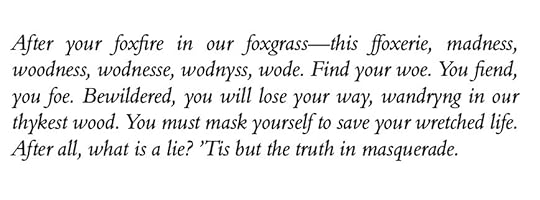
“After your foxfire...” from Vixen © 2023 by Sandra Ridley. Used with permission of Book*hug Press.
Sandra Ridley is the author of four books of poetry: Fallout; Post-Apothecary; The Counting House; and Silvija, a finalist for the 2017 Griffin Poetry Prize. She has won the bpNichol Chapbook Award, Saskatchewan Book Award for Publishing, the Alfred G. Bailey Prize, and the Toronto International Festival of Authors’ Battle of the Bards. Additionally, she has been a finalist for the Banff Centre Bliss Carman Poetry Award, the Ottawa Book Award, the Archibald Lampman Award, the ReLit Award for Poetry, and the Robert Kroetsch Award for Innovative Poetry. She has also been nominated for the Ontario Arts Council’s KM Hunter Artist Award for Mid-Career Writer and for the Ottawa Arts Council’s Mid-Career Artist Award. Ridley has taught poetry at Sage Hill Writing, Carleton University, and has had the honour of being a mentor with Ottawa’s Supportive Housing and Mental Health Services “Footprints to Recovery” program for people living with mental illness. An audio performance of her chapbook “Lift” was presented on CBC’s Sound Exchange. Her work has been anthologized and translated into German and French. Sandra grew up on a farm in Saskatchewan and lives in Ottawa.
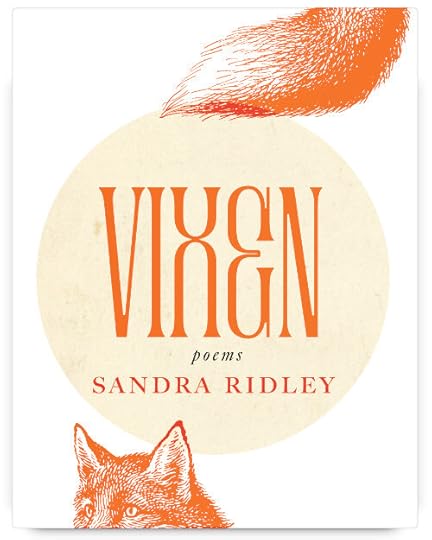 Vixen
by Sandra RidleyBook*hug Press, 2023
Vixen
by Sandra RidleyBook*hug Press, 2023Griffin Poetry Prize finalist Sandra Ridley offers a breathtaking, harrowing immersion in cruelty behind different veils: ecological collapse, the medieval hunt, and intimate partner violence.
Sparked by a haunting chance encounter with a fox, and told in six chapters of varying form, Vixen is as visceral as it is mysterious, sensuous as it is terrifying. Expanding on her body of work, Ridley exposes the wild in the domestic, the hunt in the home, and the unrelenting nature of stalking. She compels us to examine the nature of empathy, what it means to be a compassionate witness, and what happens to us when brutality is so ever-present that we become numb.
Vixen is a beautiful, difficult, and fierce tapestry of defiance and survival.
Support Send My Love to AnyoneThis newsletter is free, but you can support it by signing up for a monthly or yearly subscription, liking this post, or sharing it!
Big heartfelt thanks to all of the subscribers and contributors who make this project possible!
ConnectTwitter | Bluesky | Instagram | Archive | Contributors | Subscribe
 Get more from Kathryn Mockler in the Substack appAvailable for iOS and AndroidGet the app
Get more from Kathryn Mockler in the Substack appAvailable for iOS and AndroidGet the app



